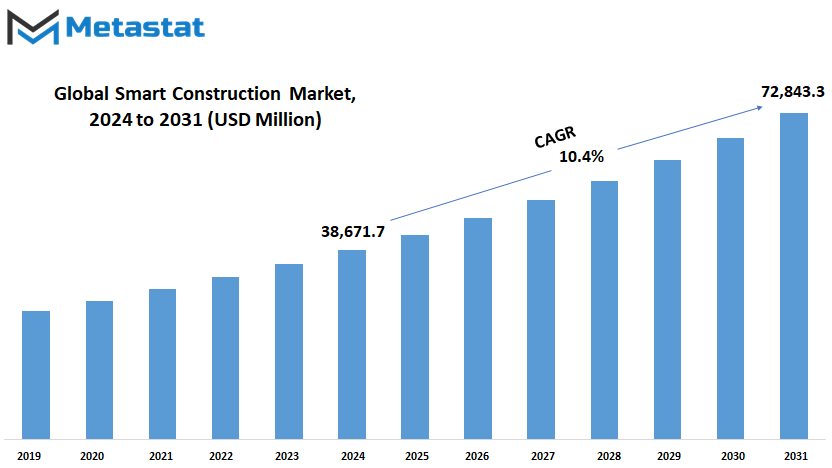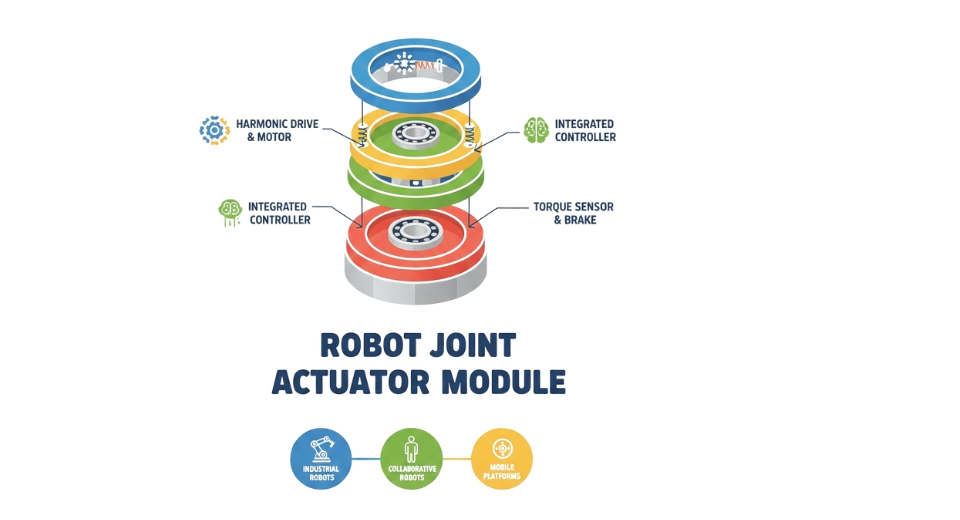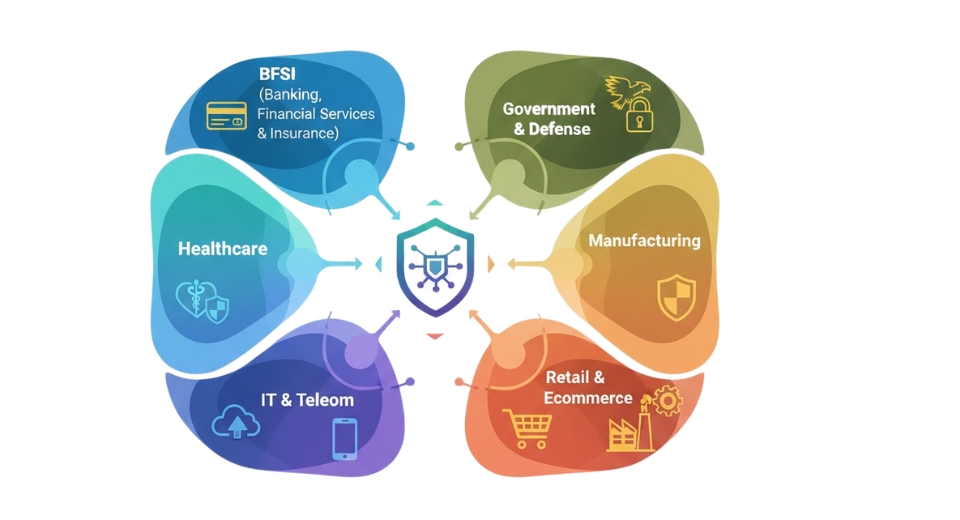MARKET OVERVIEW
Global Smart Construction market: This market is about a new generation of construction processes where the latest technological developments have been combined with traditional construction. This, in turn, forms efficient, sustainable, and intelligent building solutions. In this sense, the Global Smart Construction market can be defined as the integration of digital tools, innovative materials, and automation technologies into the construction lifecycle for increasing productivity, reducing costs, and improving project outcomes. From design and planning up to operation and maintenance, smart construction uses modern innovations, which include IoT, AI, BIM, and robotics, to address the intricacies that arise in delivering modern infrastructure needs.
From its traditional roots as a traditional industry based on manual processes and traditional methodologies, construction has undergone drastic digital transitions. Global Smart Construction is the result of these transitions. It offers a whole series of cutting-edge solutions, with the goal of optimization of efficiency, sustainability, and safety. Digital tools for construction stakeholders enable better resource, timeline, and workflow control. Such integration of construction with digital innovation would lead to real-time monitoring, predictive maintenance, and data-driven decision-making. The result would be more intelligent and resilient infrastructure.
One of the defining features of the Global Smart Construction market is its ability to integrate digital technologies into every phase of construction. For example, BIM allows for the creation of virtual models that are the backbone of planning and design. These models enable stakeholders to visualize, simulate, and evaluate projects before they are executed, reducing the risk of errors and ensuring precision. This IoT sensing in construction equipment and in buildings can yield a multitude of insights related to the performance metrics, energy consumptions, and maintenance. Such capabilities increase the lifetime of constructed assets and at the same time, improve their operational efficiency.
Robotics and automation would also mark the future course of Global Smart Construction Market. Robotic systems are already being used for bricklaying, concrete pouring, and material transportation, which saves labor costs and improves accuracy. Drones are another important technology that helps in site inspections and mapping, offering unparalleled access to data and site conditions. This integration of advanced tools ensures construction projects are completed faster, safer, and with less environmental impact.
Again, the rising importance of sustainability has created a rise in the smart construction trend. As the city expands and the basic infrastructure develops, the growing Global Smart Construction Market will have its focus on “green building” and renewables. The energy-efficient systems integrated with intelligent controls will emerge as the basis of an eco-friendly urban future through smart buildings. This will result in a reduction of the negative environmental impacts of construction and serve the needs of urbanization and population growth.
Going forward, the Global Smart Construction market is going to spread its reach into all other segments of projects such as residential, commercial, industrial, and infrastructure projects. The adoption of smart technologies is going to redefine the approach of all the stakeholders towards the construction of buildings. A future that will blend innovation with efficiency seamlessly. It will change the construction industry, and it will redefine the way society Interacts with the built environment, making a significant leap forward in technological and industrial progress.
Global Smart Construction market is estimated to reach $72,843.3 Million by 2031; growing at a CAGR of 10.4% from 2024 to 2031.

GROWTH FACTORS
The increasing demand for sustainable and energy-efficient construction practices is another important growth factor. The increasing concern about the environment compels all the stakeholders in the industry to focus on green designs and materials. Smart construction solutions are pivotal in this transformation, as they offer the latest ways of minimizing carbon footprints while maintaining the building's standards of energy efficiency. This approach resonates with the sustainability objectives worldwide, making smart construction a major contributor to a greener future.
Despite these promising advancements, the market faces challenges that could slow its growth. The high initial investment required for smart construction technologies and supporting infrastructure remains a significant barrier for many companies, particularly smaller firms with limited budgets. Additionally, there is a notable shortage of skilled labor capable of implementing and maintaining these advanced systems. Without adequate training and expertise, the full potential of these technologies may remain untapped, hindering progress in some regions.
On the positive side, the development of smart cities and mega-infrastructure plans offers fantastic opportunities for the Global Smart Construction market. With the pace of urbanization, governments, as well as private investors, are keenly inclined toward the development of smart urban spaces that incorporate advanced technologies in their core infrastructure. These projects not only improve life quality for residents but require advanced construction solutions, boosting further innovation in the area.
Looking forward, the Global Smart Construction market seems very promising in the future. It can realize its true potential by solving existing issues with strategic investments and development of the workforce. The incorporation of AI, IoT, and sustainable practices will be smoother with technological advancements. The construction processes will be smarter and more efficient with such integration. This evolution is bound to redefine the construction landscape and make it the corner of progress in the world today.
MARKET SEGMENTATION
By Technology
The Global Smart Construction market is going to lead the revolution in the construction field with innovative technologies and new solutions. With the adaptation of modern tools and practices, this market is modifying the conventional construction processes toward smarter, more efficient, and sustainable construction practices. Through these innovations, productivity issues are resolved along with urgent problems such as project time delays, cost overruns, and safety issues.
BIM serves a vital role in this market by providing a digital image of the lifecycle of any construction project. It improves collaboration between stakeholders and facilitates efficient decision-making. Precise planning with visualization, BIM has minimized errors, waste elimination, and accurate execution in projects. With growing acceptance, it is likely to become a norm in construction and be a foundation to build smarter and more sustainable buildings.
Another important aspect of the Global Smart Construction market is Artificial Intelligence (AI). AI, by analyzing big data, optimizes the planning of projects, identifies potential risks, and streamlines operations. For instance, machine learning algorithms can identify patterns which can prevent structural failures or enhance material usage. Not only does this technology save time and resources but also enhances the safety of both workers and end-users.
Smart construction is also being promoted by IoT. In an IoT, the devices and sensors acquire time-series data on aspects like equipment performance, environmental conditions, and workers' safety. The network of connection thus enables proactive decision-making through the well-synchronized construction sites.
Similarly, robotics and automation are redefining how construction tasks are performed. Automated machines can handle repetitive and hazardous tasks with precision, reducing reliance on manual labor and enhancing workplace safety. These advancements accelerate project timelines while maintaining high-quality standards.
3D printing in construction is now unlocking ways to provide faster and more cost-effective construction methods. Printing directly on site through a process can almost entirely eliminate waste, minimize material costs, and enable greater designs.
Augmented Reality (AR) and Virtual Reality (VR) deliver immersion tools for visualization and training. AR can overlay digital models over physical spaces to ensure precise installations, while VR simulates virtual environments for planning and worker training.
By Component
Global Smart Construction is going to transform the construction industry by bringing forward modern technologies and methodologies into its functioning. This market can be divided into three categories: hardware, software, and services. These, together, create a new perspective towards making a more efficient, sustainable, and technologically advanced way of construction in itself.
The hardware segment is characterized by advanced tools and devices that enhance precision and productivity on construction sites. It involves drones, robotics, sensors, and other connected equipment designed to streamline tasks, reduce human error, and improve safety. For instance, drones are used for site surveys and progress monitoring, providing a level of accuracy and efficiency that was previously unattainable. In addition, robotics and automated machinery are also employed in repetitive or high-risk activities in order to save time and reduce the risk for the employees.
Software is another crucial segment of the market. Software creates seamless and intelligent systems that can manage various aspects of construction. The project management tools, Building Information Modeling (BIM) systems, and simulation software are the most widely used solutions in this regard. These systems allow for better planning, real-time monitoring, and efficient allocation of resources, which saves costs and accelerates the completion of projects. The integration of artificial intelligence and machine learning into these software tools allows for predictive analytics, helping decision-makers anticipate challenges and optimize their strategies.
The Global Smart Construction market offers service through consulting, training, and maintenance services to ensure businesses efficiently execute the available hardware and software. These services will guarantee adequate support to fully achieve smart technologies’ value for any business. The guide through expert advice enables the shift of traditional methods to a better and innovative construction process for ultimate long-term success.
Going forward, the Global Smart Construction market is bound to explode due to continuous expansion through urbanization, increasing awareness towards sustainability issues, and further advancements in technologies. This would increasingly trend toward including renewable sources of energy, stronger data security, and modularity in construction processes. Smart cities will further contribute towards more connectivity and a shift toward the role that smart construction is expected to play in building future infrastructures.
In summary, the Global Smart Construction marketoffers a transformative opportunity for the construction industry. The market will redefine how buildings and infrastructure are planned, constructed, and maintained in the years ahead by harnessing the potential of hardware, software, and services.
By Application
The Global Smart Construction market is transforming construction project planning, execution, and management at a fast pace. It is the adoption of various technologies, such as artificial intelligence, robotics, and Internet of Things (IoT) that can make the construction processes more efficient, sustainable, cost-effective, and productive. The end inclusions of these tools have helped companies realize more accuracies, minimal waste and deadlines, as well as keeping up with ever-evolving safety and environmental criteria.
The Global Smart Construction market encompasses all sectors, including residential, commercial, industrial, and infrastructure development. In the residential construction space, the technologies help in building homes that not only meet structural requirements but are also energy-efficient and equipped with smart systems that enhance living. Such features as automatic temperature control, energy monitoring, and heightened security systems have become common expectations, thus moving the demand for smarter construction solutions ahead.
The area of commercial construction focuses on dynamic spaces that support flexible use but in a sustainable manner. Offices, malls, and hotels are designed with smart technologies to optimize energy use, improve functionality, and provide better experiences for occupants. Building Information Modeling plays a key role in this, enabling precise planning and collaboration among stakeholders, which minimizes errors and ensures cost control.
Industrial construction benefits through automation and sophisticated monitoring. Factories and warehouses are created to support productivity by infusing robotics and IoTs that monitor the structural behavior and optimize processes. Thus, it helps reduce the downtime and makes the workforce safer, aligning with the industry goals of making operations efficient and sustainable.
Infrastructure development forms another critical application area for the Global Smart Construction market. Whether it is roads or bridges, railways, smart technologies are changing big-ticket projects. The embedded sensors in infrastructure can sense the wearing and tearing in real-time, thereby avoiding expensive collapse and ensuring durability in the long run. In this category, smart construction also makes a project's execution smooth and easier through predictive analytics so that one can foresee such delays or risks beforehand in order to take timely actions.
The Global Smart Construction market will only grow with advancements in technology and access to it. Automation and sustainability adoption are no fads but a must because of urbanization and complexity of contemporary construction. The change it is undergoing makes smart construction a hallmark of efficient and vision-driven development for years ahead.
By End-User
The Global Smart Construction market rapidly transforms the construction industry, developing technologies that promise to optimize efficiency, reduce costs, and improve sustainability. This sector unifies innovative tools such as artificial intelligence, the Internet of Things, and robotics as means to address the various challenges that have traditionally marred the construction sector. Bringing smarter methods and systems forward is transforming the way structures are designed, built, and managed. The adoption of these technologies is expected to rise manifold in the coming years as industries and governments recognize the potential.
The Global Smart Construction market is segmented into key end-user categories: contractors, architects and engineers, government and public sector entities, and facility managers. Contractors will greatly benefit from these advancements through streamlined project timelines and better resource management. In general, smart technologies can foretell material requirements very accurately in construction, thus leaving no excess and ensuring project completion before due date. Architects and engineers also use these modern technologies for developing more accurate and precise designs in engineering, optimizing their structural soundness, and incorporating eco-friendly practices during construction. Smart tools of 3D modeling and virtual reality can help professionals model and design their ideas much more before actual construction even starts.
Government and other public sector organizations are making smart infrastructure investments, adding to the growth of this market. As cities grow, making them sustainable and efficient becomes most important. Smart construction helps governments build smarter cities - more advanced transportation systems and energy-efficient buildings with better resilience in infrastructure - a measure toward solving global issues like the overcrowding of cities as well as climate change. Facility managers who work to maintain buildings and infrastructural structures are increasingly utilizing smart technologies to enhance operational efficiency. Through tools such as predictive maintenance systems, they can look to identify potential issues before they escalate to become costly problems.
The Global Smart Construction market would be a big revolutionary step towards the future, as this would increase data analytics and real-time monitoring further improving decision-making processes. With autonomous construction equipment, labor dynamics would most likely shift. Cooperation among contractors, architects, engineers, and public entities is likely to strengthen as demand increases for more intelligent, more sustainable solutions.
These will drive the Global Smart Construction market forward in making a better, more efficient, and forward-thinking construction industry. This will open up possibilities to create new perspectives on construction and provide greater opportunities to all participants.
|
Forecast Period |
2024-2031 |
|
Market Size in 2024 |
$38,671.7 million |
|
Market Size by 2031 |
$72,843.3 Million |
|
Growth Rate from 2024 to 2031 |
10.4% |
|
Base Year |
2022 |
|
Regions Covered |
North America, Europe, Asia-Pacific Green, South America, Middle East & Africa |
REGIONAL ANALYSIS
The Global Smart Construction market is fast emerging as a significant entity due to the changes happening in technology that are reshaping the construction industry. This market covers more than one region, each contributing in a different way to the evolution and acceptance of the sector. North America includes the United States, Canada, and Mexico, which is an early adopter of innovation technologies and gives considerable emphasis to efficiency improvement. The United States is very prominent in terms of investments in smart construction technologies, such as building information modeling (BIM) and IoT-enabled solutions, which make it more precise and smooth. Canada and Mexico also follow the same trend and are adopting these technologies. This further strengthens the influence of the region in this market.
Europe follows next, with the UK, Germany, France, and Italy being the key contributors to the market. This region focuses on sustainable building practices and the integration of smart construction tools to meet stringent environmental regulations. The use of digital twins in the UK and the emphasis on automation and robotics in Germany exemplify the region's desire to modernize its construction industry. Other parts of Europe are also investing in these advancements, so the market will continue growing steadily.
Smart construction sector in Asia-Pacific is boosted by the country China, India, Japan, and South Korea. Fast-growing urbanization with major infrastructural work is making digital construction technology in China. As it has a growing population with cities, India uses more of smart construction in their construction for housing to develop its towns rapidly. Japan and South Korea, being known for their technological innovation, are pioneering the use of AI and robotics in construction. Other countries in the region are also embracing these changes, making Asia-Pacific a dynamic hub for the smart construction market.
South America, led by Brazil and Argentina, is gradually adopting smart construction practices to address infrastructure challenges and improve project management. This potential may be slow compared with others in different regions, but considering investment in modernizing worn systems in governments, it really increases; for instance, the Middle East and Africa are new potential customers in this market, considering that GCC countries will use the UAE and Saudi Arabia to spearhead new and giant smart city projects, integrating new innovative construction technologies into them. South Africa and Egypt are also investing on similar opportunities to act as a foundation for expanding.
The Global Smart Construction market still continues to evolve with each region trying to add its own characteristic flavor to the development of smart construction.

COMPETITIVE PLAYERS
The Global Smart Construction market is steadily gaining significance in the wake of advancements in technology reshaping the construction industry. This market specializes in integrating intelligent solutions to develop efficiency, safety, and sustainability for construction projects. Such technologies involved are automation, data analytics, building information modeling (BIM), and Internet of Things (IoT) applications. As the world witnesses growth in demand for smart cities and sustainable infrastructure, it will lead to the Global Smart Construction market. This market is going to shape the face of urban development in years to come.
Major companies actively driving this innovation are each bringing some unique solution to the industry. For example, Autodesk Inc. and Bentley Systems, Incorporated, two companies that primarily work upon enhancing design and project management processes through cutting-edge software tools. Trimble Inc. and Leica Geosystems AG have advanced surveying and geospatial solutions that ensure accurate measurements and integration into digital models. On the other hand, machinery manufacturers such as Caterpillar Inc. and Komatsu Ltd. Integrate automation and AI into their construction equipment, which maximizes productivity while minimizing environmental impact.
It is not just about technology adoption; it is also about creating a competitive edge. Oracle Corporation and Procore Technologies, Inc. are addressing the need for efficient project management platforms that allow for real-time collaboration and better decision-making. Dassault Systèmes SE and Hexagon AB provide simulation and analysis tools that offer predictive insights to minimize risks and enhance construction outcomes. Siemens AG and ABB Ltd. Are embedding IoT-enabled sensors in infrastructure, which facilitates smart monitoring systems that ensure safety and energy efficiency.
Global urbanization is expected to grow fast and is demanding these innovations. With increased population pressure, governments and private individuals are seeking sustainable construction practices; smart construction technologies play a leading role in this pursuit. Predictive analytics, robotics, and cloud-based platforms are likely to play a vital role in the coming years and are going to make construction processes faster, safer, and more economical.
This competitive environment promotes constant improvement and enhances quality while reducing costs. This kind of expansion in portfolios by players like Hitachi Construction Machinery Co., Ltd., PTC Inc., and Viewpoint, Inc., is likely to contribute to an increase in diversified solutions responding to different construction requirements. It shall define a smarter and interconnected future for the construction industry by cooperating with the rest of the global sustainability and urban efficiency efforts. In this dynamic landscape, collaboration and technological leadership will determine the pace and success of market evolution.
Smart Construction Market Key Segments:
By Technology
- Building Information Modeling (BIM)
- Artificial Intelligence (AI) in Construction
- Internet of Things (IoT)
- Robotics and Automation
- 3D Printing in Construction
- Augmented Reality (AR) and Virtual Reality (VR)
By Component
- Hardware
- Software
- Services
By Application
- Residential Construction
- Commercial Construction
- Industrial Construction
- Infrastructure Development (Roads, Bridges, Railways, etc.)
By End-User
- Contractors
- Architects and Engineers
- Government and Public Sector
- Facility Managers
Key Global Smart Construction Industry Players
- Autodesk Inc.
- Trimble Inc.
- Hexagon AB
- Komatsu Ltd.
- Caterpillar Inc.
- Hitachi Construction Machinery Co., Ltd.
- ABB Ltd.
- Oracle Corporation
- Siemens AG
- Procore Technologies, Inc.
- PTC Inc.
- Bentley Systems, Incorporated
- Dassault Systèmes SE
- Leica Geosystems AG
- Viewpoint, Inc.
WHAT REPORT PROVIDES
- Full in-depth analysis of the parent Industry
- Important changes in market and its dynamics
- Segmentation details of the market
- Former, on-going, and projected market analysis in terms of volume and value
- Assessment of niche industry developments
- Market share analysis
- Key strategies of major players
- Emerging segments and regional growth potential








 US: +1 3023308252
US: +1 3023308252






